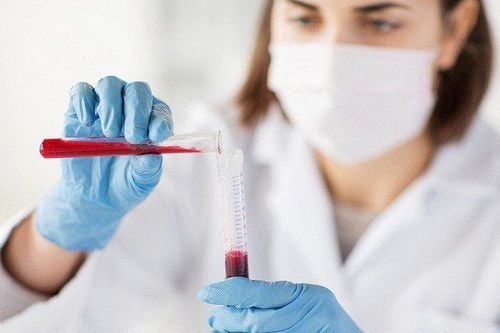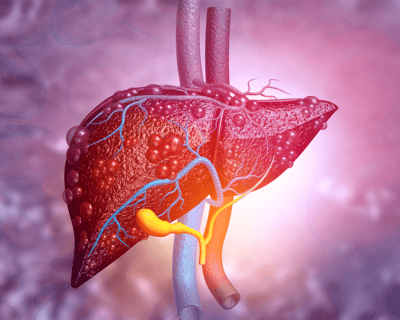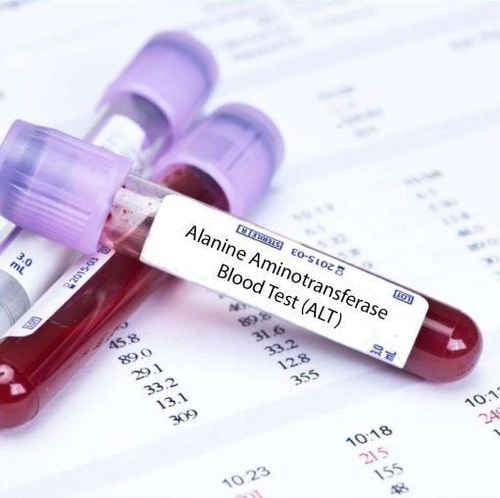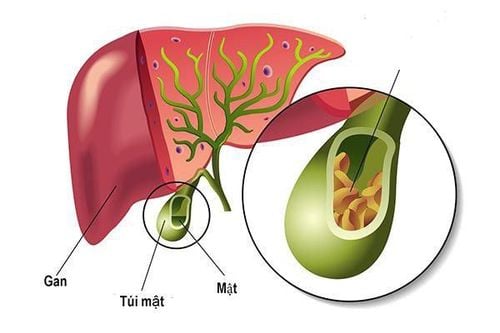The Anti-HBe test is one of the key tests used to diagnose and monitor hepatitis B, along with tests like HBsAg, HBeAg, and Anti-HBs. However, many people are still unsure about what the Anti-HBe test is and what its results mean.
1. What is the Anti-HBe test?

The Anti-HBe test, also called HBeAb, is used to detect antibodies that target the HBeAg antigen. These antibodies play a key role in suppressing the replication of the hepatitis B virus (HBV), including mutated strains, within the body. Alongside Anti-HBe, Anti-HBs antibodies also have the ability to inhibit HBV replication, but they rarely appear simultaneously.
This test is primarily used to assess the replication activity of HBV, helping determine whether the virus is still multiplying or has stopped. It is an essential part of the diagnostic and monitoring process for hepatitis B, aiding in the initial detection of the disease and evaluating the effectiveness of treatment over time to inform future medical decisions.
However, the Anti-HBe test alone cannot confirm immunity against HBV. To determine immunity, other factors, such as HBeAg levels and HBV DNA quantification, need to be considered.
In clinical practice, the Anti-HBe test is used to evaluate the viral activity level and is typically prescribed for individuals already diagnosed with hepatitis B. Regular monitoring of liver health and viral activity is recommended every 6–12 months until the Anti-HBe test shows a positive result, indicating reduced viral replication. To provide a comprehensive assessment of the disease's progression, the Anti-HBe test is often performed alongside the HBeAg test.
2. Significance of a Positive Anti-HBe Test Result (+)
2.1. Positive treatment response
In most cases, Anti-HBe (+) along with HBeAg (-) indicates a positive outcome for hepatitis B patients. The presence of Anti-HBe antibodies suggests that the immune system has successfully suppressed viral replication through treatment, either halting the virus's activity or dealing with a mutated form. This result allows doctors to evaluate the current treatment regimen and confirms that the condition is progressing favorably.
2.2. Chronic Hepatitis B
In some instances, HBeAg (-) and Anti-HBe (+) indicate that the disease has transitioned into a chronic phase. In this scenario, the virus continues to replicate, but the body is unable to suppress it using Anti-HBe alone.
The presence of Anti-HBe in the blood serum of chronic hepatitis B patients often signifies that the infection has been active for an extended period, increasing the risk of complications like cirrhosis, liver failure, or even primary liver cancer. Early detection of these risks through Anti-HBe testing can help in planning timely interventions to manage the disease and its complications.
2.3. Acute Hepatitis B
Anti-HBe levels are also used to assess the natural progression of acute hepatitis B. A positive Anti-HBe test result (+) may indicate one of the following scenarios:
- Late stage of acute hepatitis B: Anti-HBe (+), HBsAg (+), and Anti-HBc IgM (+).
- Resolution of acute hepatitis B: Anti-HBe (+), HBsAg (-), and Anti-HBc IgM (+).
- Chronic hepatitis B: Anti-HBe (+), HBsAg (+), Anti-HBc IgM (-), and total Anti-HBc (+).
- Past infection with current immunity: Anti-HBe (+), HBsAg (-), and total Anti-HBc (-).
Each of these profiles provides critical insights into the patient’s condition and helps healthcare providers develop a tailored treatment or monitoring strategy.

2.4. Seroconversion
During hepatitis B treatment, a positive Anti-HBe result can indicate that seroconversion might be occurring.
Seroconversion happens when Anti-HBe changes from negative to positive, and HBeAg changes from positive to negative. This shows that the virus in the blood has stopped or significantly reduced its replication. This process can happen naturally or as a result of effective antiviral treatment for hepatitis B.
A positive Anti-HBe result (+) is one sign of seroconversion and helps assess how well the treatment is working. However, successful treatment also depends on other factors, such as:
- HBsAg changing from positive (+) to Anti-HBs positive (+).
- The viral load dropping below detectable levels (HBV-DNA < 40 copies/ml).
- Liver enzyme levels returning to normal.
3. Significance of a Negative Anti-HBe Result (-)
A negative Anti-HBe result indicates that the current treatment for hepatitis B is not effective. The HBV virus is still replicating normally, and the body is unable to suppress it with Anti-HBe, possibly due to drug resistance.
In other words, a negative result suggests that the virus is becoming more active. At this point, the patient will likely need to change their treatment plan to better control and manage the hepatitis B virus.
4. Things to Note When Having Hepatitis B

Currently, hepatitis B can be treated with antiviral medications, stem cell therapy, or methods to strengthen the immune system. For individuals who have just been diagnosed, it is important to start treatment as soon as possible. Using the right treatment based on the individual’s condition can help manage the disease more effectively. Patients should avoid self-prescribing medications for hepatitis B, as this could lead to drug resistance or antiviral resistance.
During treatment, patients should also:
- Maintain a balanced and healthy diet without overly restricting foods
- Engage in regular physical activity to stay in good health
- Avoid alcohol, smoking, and stimulants
- Minimize the use of oils and fats in food preparation
- Limit caffeine and soda consumption
- Have regular check-ups with a doctor to monitor the progress of hepatitis B
Hepatitis B is a common and serious condition that can cause significant liver damage. Currently, there is no complete cure for it. For this reason, it’s crucial for individuals to take preventive measures and properly manage the disease to prevent severe complications. The hepatitis B vaccine is the primary preventive method, recommended for everyone (except those who are already immune), offering high protection that can even last a lifetime.
In conclusion, the Anti-HBe test helps doctors assess how well the current treatment is working. The Anti-HBe marker is essential for guiding the treatment of chronic hepatitis B.
The Anti-HBe test is available in the Liver Screening Packages at Vinmec International General Hospital. It helps detect the hepatitis B virus at an early stage, even before symptoms appear.
To arrange an appointment, please call … or make your reservation directly HERE. You may also download the MyVinmec app to schedule appointments faster and manage your reservations more conveniently.













